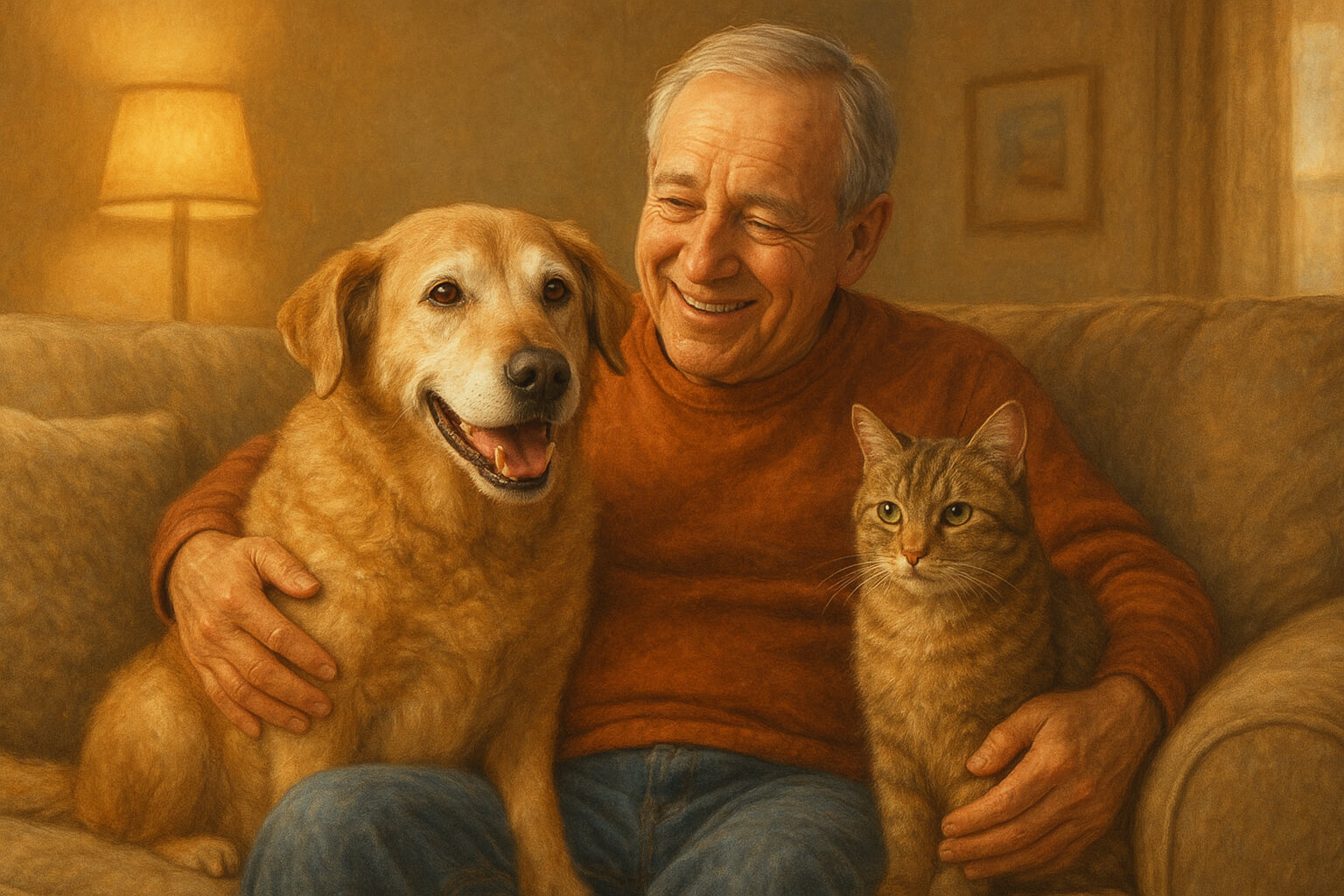September 03, 2025

When considering adopting a pet, people often envision playful puppies or kittens, with their boundless energy and irresistible cuteness. However, older pets—whether they’re senior dogs, cats, or even exotic animals—often get overlooked at shelters, despite offering incredible companionship and joy. While they may not have the same "newness" as puppies and kittens, older pets come with a unique set of benefits that make them equally (if not more) rewarding to adopt.
Adopting a senior pet isn’t just a noble act; it’s a decision that can enrich your life and transform the life of the animal. These pets may be older in age, but their hearts are still full of love, loyalty, and gratitude.
Older pets often find themselves in shelters through no fault of their own. Many are surrendered due to changes in their owners' lives—such as moving, financial hardships, or even health problems. These pets have likely been someone's beloved companion and may have spent years in a home before ending up in a shelter.
However, by adopting an older pet, you provide a second chance for an animal that may otherwise spend its final years in a shelter cage. For them, it’s the difference between enjoying their golden years in a loving home versus spending them alone and neglected.
According to the ASPCA, nearly 6.3 million companion animals enter U.S. shelters every year, with many of these animals being older pets who need homes. Senior pets make up a significant portion of these statistics, but each one has the potential to bring immense joy and companionship into a new home.
There are many stories of rescue groups and shelters that specialize in senior pet adoptions. These organizations show how adoption can break the cycle of abandonment and neglect, giving senior animals the opportunity to live out their remaining years surrounded by love and care. Check out inspiring rescue stories to see how senior pets thrive once given the chance.
To see how fostering can also benefit older animals, read about the benefits of fostering and learn how it gives senior pets the temporary love they need while awaiting permanent homes.
Adopting a senior pet doesn’t just save that one animal—it has a ripple effect throughout the shelter system. By choosing to adopt, you’re opening up space for another animal in need, allowing shelters to continue their work rescuing and caring for more pets.
Adoption has a broader impact:
For more on how adoption positively impacts shelters and the animals they care for, explore these resources:
It’s important to understand that older pets may take a little longer to adjust to their new environment, but with a little patience, they can settle in comfortably.
If you're considering adopting, you may find these resources helpful in preparing for a successful adoption:
Adopting an older pet is more than just a charitable act—it's a deeply rewarding experience for both you and the animal. Senior pets often make the most devoted and loving companions, offering stability, loyalty, and a sense of calm that’s perfect for many households. Plus, by adopting, you’re giving them the chance to experience a happy, comfortable life in their later years.
If you're considering welcoming a furry friend into your home, don’t overlook the many senior pets in shelters waiting for a second chance. They may not be as young as puppies or kittens, but they have so much love to give—and they’re ready to return the favor in ways you can’t even imagine.
By adopting an older pet, you’re not just saving a life—you’re transforming yours as well.
For further insights on the importance of pet adoption and how to help:
Stay up to date with the latest tips, expert insights, product reviews, and step-by-step guides to help you grow, create, and succeed—no matter your industry or passion.